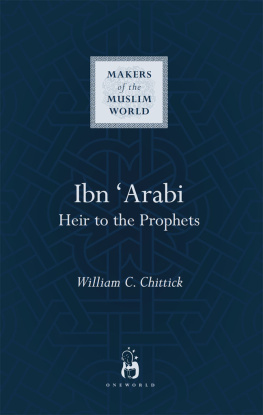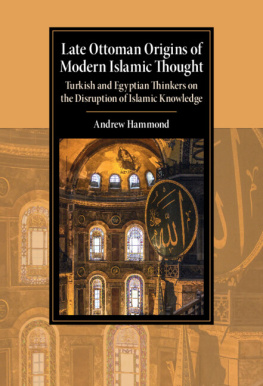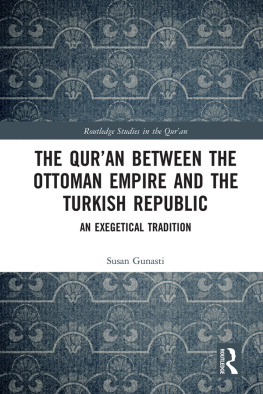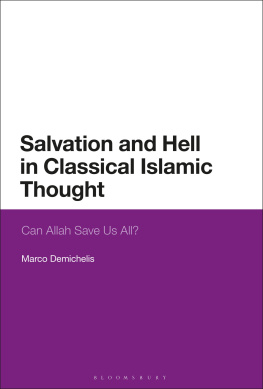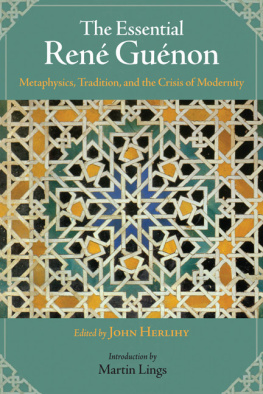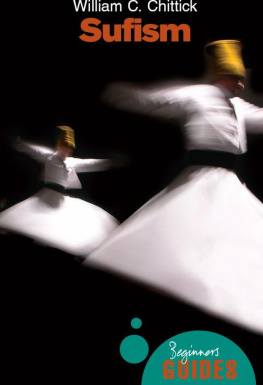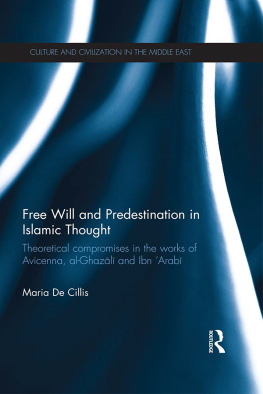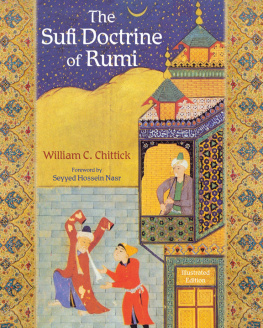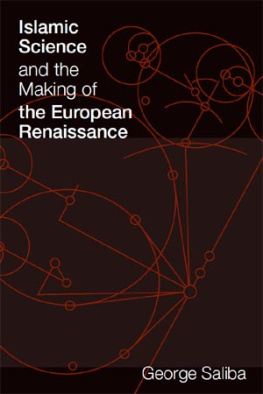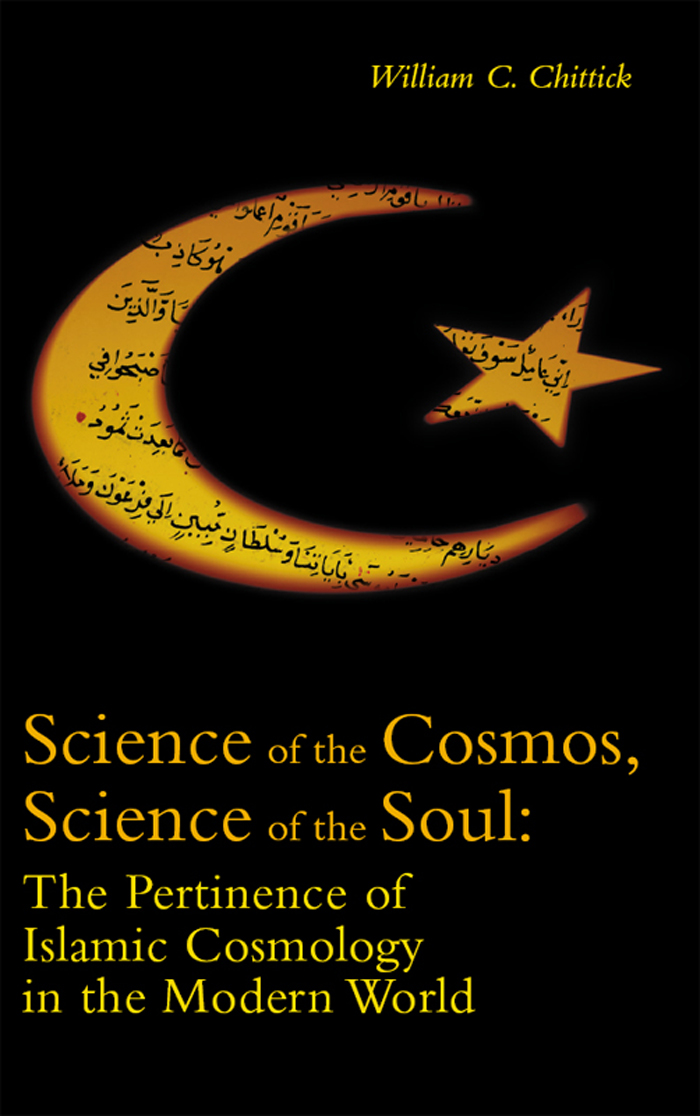Science of the Cosmos, Science of the Soul
Science of the Cosmos, Science of the Soul
The Pertinence of Islamic Cosmology in the Modern World
William C. Chittick

SCIENCE OF THE COSMOS, SCIENCE OF THE SOUL
A Oneworld Book
Published by Oneworld Publications 2007
Copyright William C. Chittick 2007
Reprinted 2008, 2009
This ebook edition published in 2013
All rights reserved
Copyright under Berne Convention
ACIP record for this title is available
from the British Library
ISBN 9781851684953
eISBN 9781780744667
Typeset by Jayvee, Trivandrum, India
Cover design by e-Digital Design
Oneworld Publications
10 Bloomsbury Road
London WC1B 3SR
England
www.oneworld-publications.com
Stay up to date with the latest books,
special offers, and exclusive content from
Oneworld with our monthly newsletter
Sign up on our website
www.oneworld-publications.com
Contents
Introduction
I began studying Islamic thought forty years ago. I was originally attracted to the field by a fortuitous set of circumstances that led me to spend my junior year in college at the American University of Beirut. A general interest in non-Western religions blossomed when I was exposed to lectures and books on Sufism and Islamic philosophy. I quickly realized that the only way to acquire more than a superficial acquaintance with these topics was to learn Arabic and Persian. After a dozen years of study and research, I began publishing the results of my explorations. My primary concern from the beginning was trying to understand what Sufis and Muslim philosophers were saying. How did reality appear to them? How did they explain the great issues of meaning that people face in attempting to make sense of their lives?
In most of my publications over the years, I have let Rm, Ibn Arab, adr al-Dn Qnaw, Abd al-Ramn Jm, Afdal al-Dn Kshn, Shams-i Tabrz, Mull adr, and others do the talking, while I sat back with my readers and listened to their words. In the past few years, however, I have felt more at ease in applying the insights gleaned from the material to new contexts. Given the deep seriousness of the authors, it has seemed to me that I owe it to them to bring out some of the significance of their perspectives for the specifically modern context, such as the role played by science in the contemporary Zeitgeist. It is the attempt to find contemporary relevance that is the common thread of these essays.
Much of the book develops implications of a distinction between two ways of knowing that is basic to the great religions under a variety of nomenclature, though it is typically ignored in discussions of contemporary issues. Islamic sources speak about it in a variety of ways. Here I focus on a standard differentiation that is made between transmitted (naql) and intellectual (aql).
Transmitted knowledge is characterized by the fact that it needs to be passed from generation to generation. The only possible way to learn it is to receive it from someone else. In contrast, intellectual knowledge cannot be passed on, even though teachers are needed for guidance in the right direction. The way to achieve it is to find it within oneself, by training the mind or, as many of the texts put it, polishing the heart. Without uncovering such knowledge through self-discovery, one will depend on others in everything one knows.
Typical examples of sciences based on transmitted learning are language, history, and law. The usual example of an intellectual science, even though it does not meet all the criteria, is mathematics. We do not say, Two plus two equals four because the authorities say so. The mind is able to discover and understand mathematical truth on its own, and once it discovers it, it does not depend on outside sources. The knowledge is known to be true because, once we understand it, it is self-evident. We can no more deny its truth than we can deny our own awareness.
Transmitted knowledge depends on hearsay. It is by far the most common sort of knowledge in any culture or religion. Buddhists may know that enlightenment is an experience that transcends all conventional forms of knowing, but, until they achieve it, they have received what they know about it by way of transmission. Muslims know that God requires them to pray five times a day, but they take this knowledge from the ulama, those who have become learned in the Quran and the Hadith. They cannot discover what God wants from them without the transmission of the revealed sources. So also for the rest of us: transmission and hearsay provide us with language, culture, opinions, worldview, and practically everything we think we know. In contrast, intellectual understanding is what we know with complete certainty in the depths of our souls. But such knowledge is rare.
The search for intellectual knowledge in Islamic civilization was undertaken in two broad fields of learning, each of which developed many branches and underwent numerous historical vicissitudes. For simplicitys sake, I am calling them philosophy and Sufism. Philosophy built on the logical and rational methodologies systematized by the Greeks, and Sufism based itself on the contemplative techniques received from the Prophet. The two fields frequently overlapped, especially from the thirteenth century onward.
Philosophy and Sufism diverged sharply from the transmitted sciences by acknowledging explicitly that the meanings of things in the world cannot be found without simultaneously finding the meaning of the self that knows. Certainly, one studies the world to achieve the understanding of phenomena, but understanding is an attribute of the soul, of the knowing subject. Masters of the intellectual approach recognized that meaning hides behind the signs (yt) of God, that all phenomena point to noumena, and that those noumena can only be accessed at the root of the knowing self.
If we view the intellectual tradition in a broad perspective, it is clear that it did not allow for the sharp distinction between subject and object that was a prerequisite for the rise of modern science. If I focus more on Islamic philosophy than on Sufism here, it is partly because of the notion often seen in the writings of Western historians and modern-day Muslim apologists that Islamic science which was developed by the philosophers and not the Sufis was an important precursor to modern science. I chose the title Science of the Cosmos, Science of the Soul precisely because it highlights science and at the same time brings in the term soul, which is central to the philosophical tradition and about as unscientific as a term can be.
Let me say up front that the intellectual approach about which I am writing has been moribund for over a century. A few people still speak for it, but their voices go largely unheard. The economic, political, and social forces that drive activity in the rest of the world have not left Muslims behind. Those who are able to gain an education normally do so with pecuniary goals in mind. The technical and practical fields, which can be mastered rather quickly and offer relative assurance of a comfortable life, attract the best students and dominate the universities. The traditional educational institutions, which used to ask students to dedicate their lives to the quest for knowledge and virtue, have almost totally disappeared. In their places have grown up theological schools that churn out zealots and ideologues.


